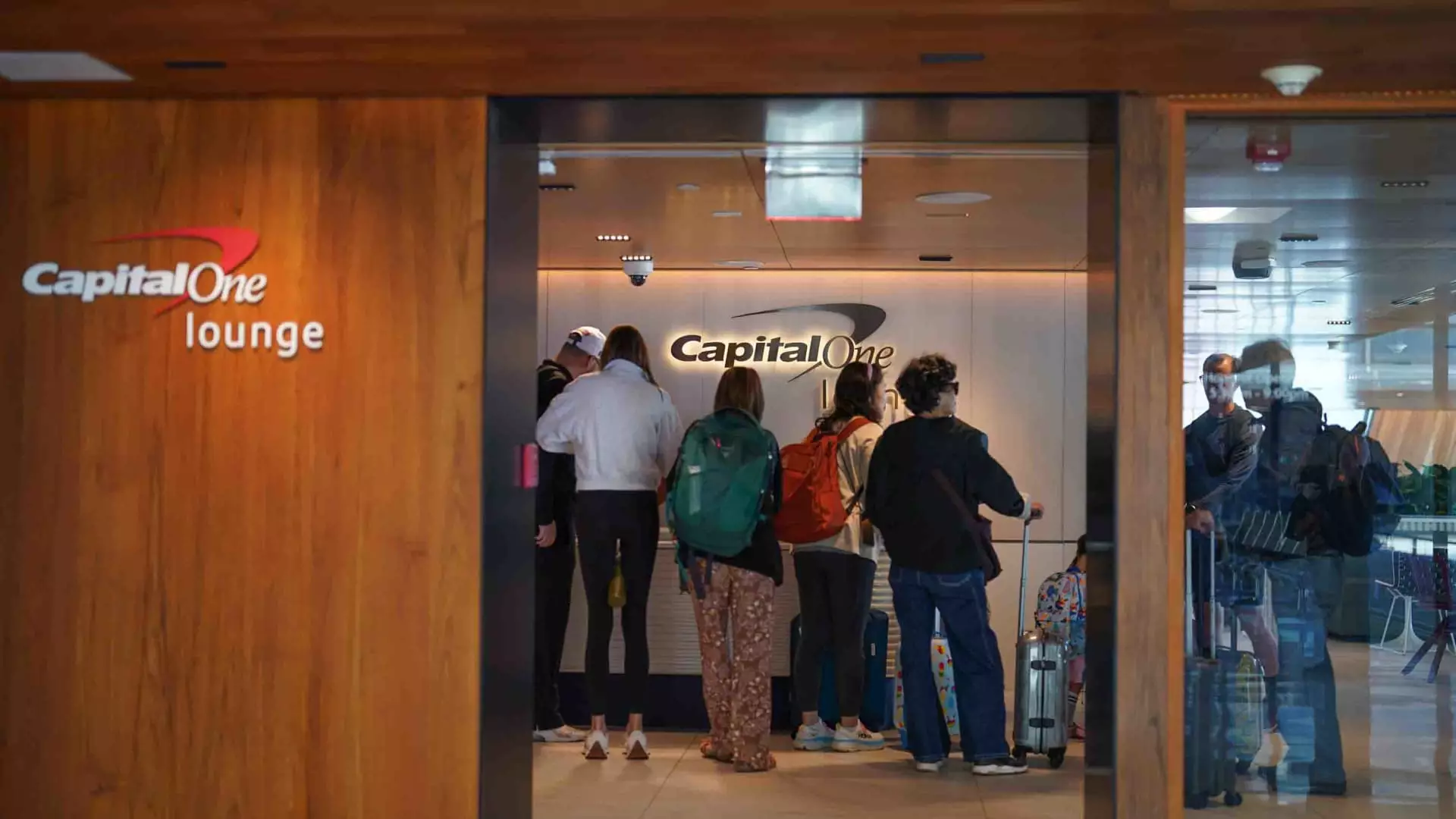Once a bastion of tranquility amidst the chaos of bustling airports, airport lounges have become the new status symbol within the travel ecosystem. The recent announcement by Capital One to limit access to its lounges for Venture X and Venture X Business cardholders exemplifies a larger trend in which the allure of comfortable travel experiences is being tainted by rising fees and restricted access. While in-flight ticket prices may be declining, the cost of enjoying a moment of serenity before a flight is escalating—leaving many would-be travelers feeling not just frustrated, but also marginalized.
In recent years, airport lounges have felt the strain of increased popularity. They’ve become victims of their own success, where overcrowding has rendered our once-relaxing retreats into crowded waiting rooms. Capital One’s new stipulations—charging $125 annually for additional cardholders and $45 per adult guest—reinforces a troubling narrative where leisure and comfort are commodified to increasingly restrictive levels. If you’re a frequent traveler with a family, traveling through an airport has become a game of financial gymnastics; one must now balance the desire for comfort against the quickly inflating costs of access.
The Price of Exclusivity: A Bitter Pill to Swallow
What has unfolded is a scenario where financial elite privilege dictates who gets to enjoy premium experiences. For the casual traveler, previously accessible lounges may feel like distant memories. The staggering requirement of a $75,000 spend annually to bring guests into the lounge is not only eye-popping but morally questionable. It raises the question: Are we creating a travel culture where only the affluent—or those willing to spend exorbitantly—can savor the luxury of an airport lounge?
Henrick Harteveldt, founder of Atmosphere Research Group, aptly points out that Capital One, despite being a relatively new entrant in the arena, now faces the same overcrowding dilemmas as its more established counterparts like American Express and Chase. Access no longer seems to depend on merit, but on financial clout. This trend undermines the original intent of reward programs, which were designed to celebrate loyalty and frequent travel, not transform into barriers divided by economic status.
Undercutting Loyalty and the Illusion of Choice
As airlines vie for the “most exclusive” status in this rapidly evolving landscape, they increasingly impose limitations that undercut customer loyalty. Delta Air Lines and others are similarly tightening access, promoting an elitist mentality rather than fostering goodwill among their frequent flyers. Once upon a time, lounges represented a shared space for all travelers to unwind, but today it feels more like a club reserved for the financial elite.
Moreover, what’s perhaps most exasperating is that even with these premium price hikes, the quality of service isn’t evidently improving. If anything, these expanding barriers seem to reflect a profit-driven agenda rather than a genuine desire to enhance the travel experience. It begs the question of how much we, as travelers, are willing to tolerate in exchange for perceived luxury.
A Cultural Shift: The Death of Accessible Travel?
We must reflect critically on where this trend leads us. Are we heading towards an airport culture that alienates the average traveler? The notion of travel should be inclusive, yet these shifts signal an impending divide. If lounges are no longer the serene spaces they once were, what will become of traveling as a shared experience? Instead of welcoming diversity in the traveler’s demographic, we risk fostering a sense of entitlement among those who can pay—driving a wedge between people and their travel experiences.
In this new world of air travel, the very fabric of what it means to enjoy the journey is at stake. The more comfortable we make flying for the few, the less accessible it becomes to the many. Beneath the marketing facade of premium rewards, we see a stark inversion of the principles of travel itself—a pathway setback towards a culture of exclusion rather than inclusion.

